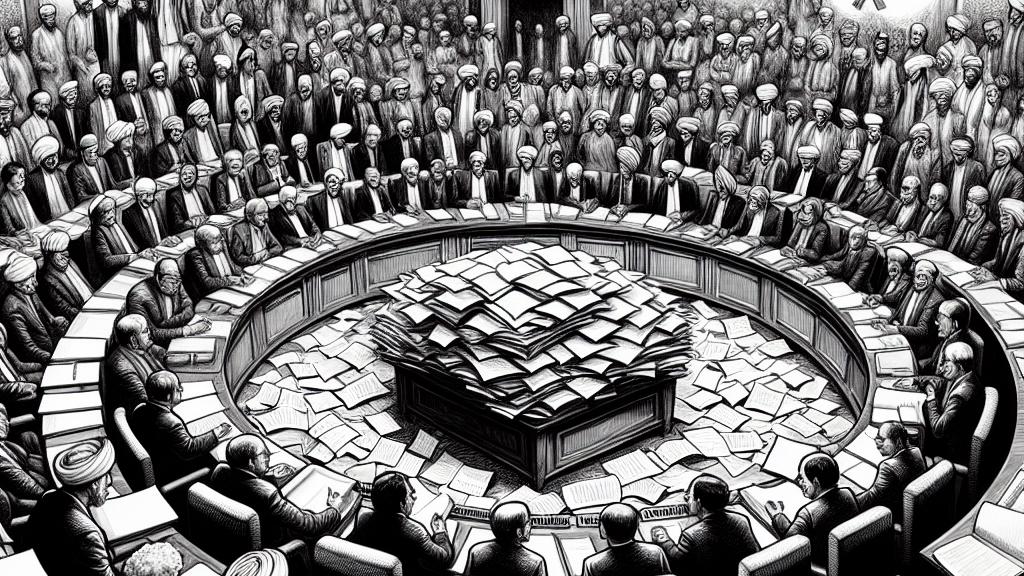Navigating Policy Conflicts in South Africa's Government of National Unity
Overview
- Cyril Ramaphosa and John Steenhuisen tackle tensions around the controversial BELA Bill.
- The debate highlights significant divisions within the Government of National Unity.
- Conflict is a vital aspect of democracy, driving progress through discussion and negotiation.

Context of the BELA Bill
The Basic Education Laws Amendment (BELA) Bill has become a focal point of intense debate in South Africa, sparking crucial discussions within the Government of National Unity (GNU). Recently, President Cyril Ramaphosa and DA leader John Steenhuisen have stepped forward to address growing concerns surrounding this legislation. The BELA Bill, aimed at reforming crucial elements of the education system, has met significant backlash, especially from the DA, who argue that it jeopardizes Afrikaans language rights and parental influence in schools. One contentious provision suggests that schools could be required to adopt multiple languages of instruction, leading to fears of diminished cultural identity and parental disempowerment. For instance, many in the Afrikaans community believe that this shift could undermine their children’s education and heritage, illustrating the strong emotional ties to language and culture in education.
Reactions from Political Leaders
The contrasting responses from Ramaphosa and Steenhuisen expose the deeper nuances of governance and the importance of cooperation in a coalition. Ramaphosa, known for his diplomatic demeanor, emphasizes the power of dialogue, asserting that comradery and communication are essential for resolving policy disputes. He often references Nelson Mandela's legacy of seeking solutions through conversation, embodying a belief in the potential for unity even amidst disagreement. Meanwhile, Steenhuisen adopts a more assertive tone, warning that if Ramaphosa signs the BELA Bill, it may force the DA to reconsider its participation in the GNU. He argues passionately that his party will protect the democratic ideals of South Africa, asserting, “If we face policies that endanger our constitutional rights, we will stand firm and act.” This robust debate not only highlights differing philosophies but also illustrates how vital it is to respect varying perspectives within the coalition.
Implications for the Future
As the discussions around the BELA Bill play out, the implications of these policy conflicts reach far beyond the immediate political landscape; they have the potential to shape the future of South Africa’s educational system and its democracy at large. Steenhuisen’s points reflect a crucial understanding that while it’s natural for coalition governments to experience conflict, maintaining the foundational agreements is key to stability. This balance is essential; disagreements can foster democracy by encouraging diverse viewpoints and sparking necessary debates. Moreover, the potential reforms in the BELA Bill could tackle systemic challenges in education, yet they must be approached with care to ensure that all voices, particularly those of minority language speakers, are heard and respected. As both leaders maneuver this complex situation, their choices will resonate deeply within classrooms and communities, influencing the educational experiences of future generations and the health of South Africa's democratic fabric.

Loading...